Solanum ehrenbergii
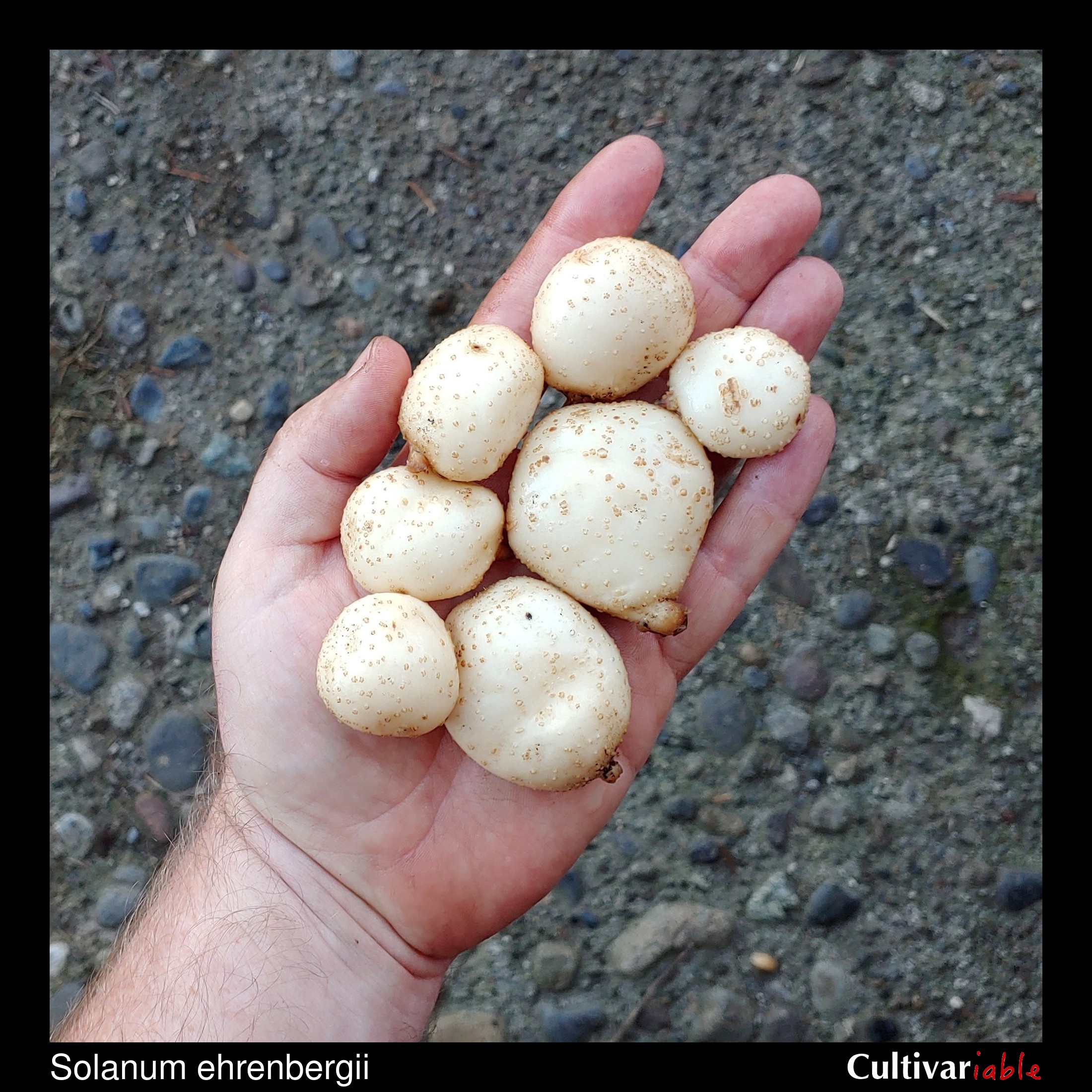
| Common Names | Cimatli |
| Code | ehr |
| Synonyms | S. cardiophyllum subsp. ehrenbergii |
| Clade | 1 |
| Series | Pinnatisecta |
| Ploidy | Diploid (2x) |
| EBN | 1 |
| Tuberization Photoperiod | Long Day |
| Self-compatibility | No |
| Nuclear Genome | B |
| Cytoplasmic Genome | Unknown |
| Citation | Rydberg: Bull. Torrey Bot. Club 51: 169. 1924. |
Description
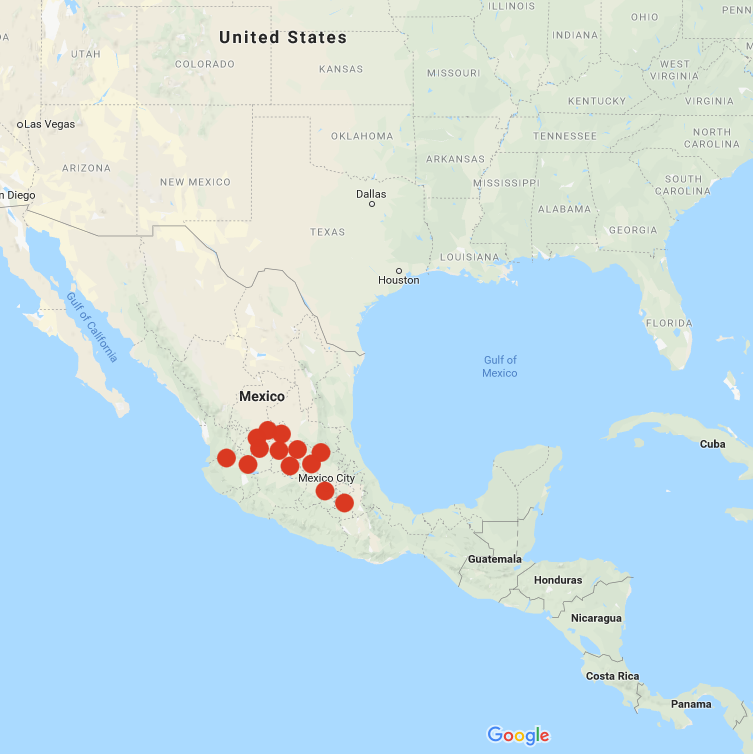
Solanum ehrenbergii is a widespread species in central Mexico. It is commonly known as cimatli, along with the closely related S. cardiophyllum. Plants take a variety of forms, from low growing rosettes to tall and erect, reaching a maximum height of about two feet.
The specific epithet, ehrenbergii, honors German botanist Carl August Ehrenberg. While there is no completely standardized pronunciation for scientific names, the most common way to pronounce this species is probably so-LAY-num ehr-en-BERG-ee-eye.
Sotelo (1998) studied the nutrition of S. ehrenbergii and found that the accessions they studied have a protein content about the same as the domesticated potato and a vitamin C level of 2.36mg / 100g, much lower than the domesticated potato.
Some accessions of S. ehrenbergii appear to be edible and there was at least one farm that was growing S. cardiophyllum, S. ehrenbergii, and S. stoloniferum for market in Jalisco as recently as 2010 (Villa Vazquez 2010).
Resistances
This species can survive frosts down to 27 degrees F (-3 C) (Li 1977, as S. cardiophyllum).
| Condition | Type | Level of Resistance | Source |
|---|---|---|---|
| Alternaria solani (Early Blight) | Fungus | Somewhat resistant | Jansky 2008 |
| Globodera pallida (Pale Cyst Nematode) | Invertebrate | Somewhat resistant | Castelli 2003 |
| Globodera rostochiensis (Potato Cyst/Golden Nematode) | Invertebrate | Somewhat resistant | Castelli 2003 |
| Pectobacterium carotovorum (Blackleg/Soft Rot) | Bacteria | Some resistance | Chung 2011 |
| Phytophthora infestans (Late Blight) | Fungus | Some resistance | Karki 2020 |
| Potato Virus Y (PVY) | Virus | Somewhat resistant | Cai 2011 |
Glykoalkaloid content
Johns (1990) found that the primary glycoalkaloid of this species is demissine and a very low concentration of only about 2mg/100g. On the other hand, Sotelo (1998) found a level of 108mg / 100g for solanine and chaconine, a level far into the danger zone. So, some accessions of S. ehrenbergii may be as safe to consume as domesticated potatoes, while others are dangerous. Caution is always warranted when trying new varieties of any wild potato species.
Images
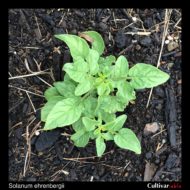 |
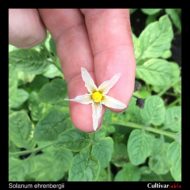 |
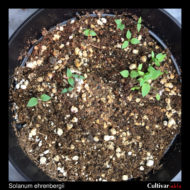 |
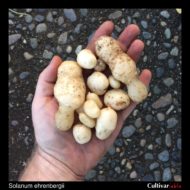 |
 |
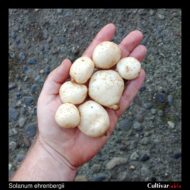 |
||
Cultivation
I have found this species difficult to germinate. It may require conditions different than the standard for S. tuberosum.
Bamberg (2017) found minimal improvement in seed set in this species with supplemental applications of liquid fertilizer at four and seven weeks after potting.
This species typically has about five months of dormancy.
Breeding
Crosses with S. tuberosum
| Female | Male | Berry Set |
Seed Set | Germ | Ploidy | Source |
|---|---|---|---|---|---|---|
Crosses with other species
| Female | Male | Berry Set |
Seed Set | Germ | Ploidy | Source |
|---|---|---|---|---|---|---|
